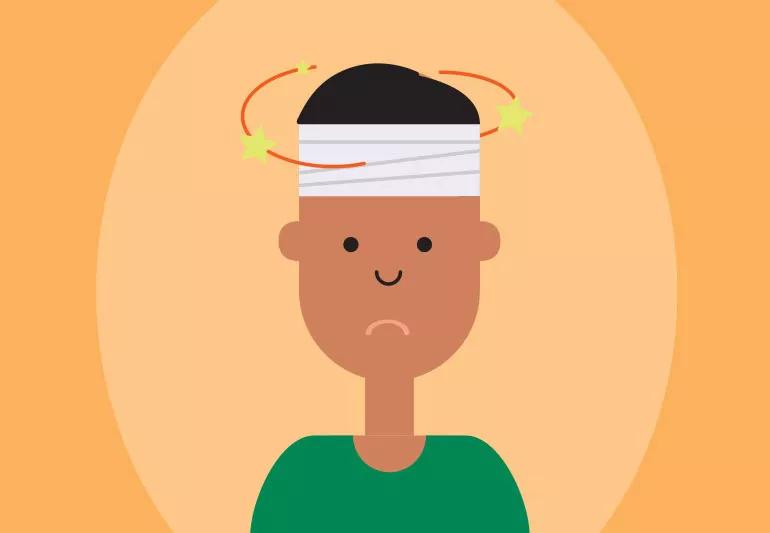The short answer from a concussion specialist

Image content: This image is available to view online.
View image online (https://assets.clevelandclinic.org/transform/355e38ea-e470-4cf4-bb71-870dfcc1e3fe/concussionSleep-683381680-770x533-1_jpg)
person with concussion
A: There is no evidence to support that waking someone up with a suspected concussion (or not letting them sleep at all) is needed or beneficial. There is also no proof that waking them is going to help them get better faster.
Advertisement
Cleveland Clinic is a non-profit academic medical center. Advertising on our site helps support our mission. We do not endorse non-Cleveland Clinic products or services. Policy
This advice probably stemmed from the idea that falling asleep after a head injury could lead to a coma, but that’s simply not true.
We know that rest is a crucial component for a concussion to heal, so waking someone up or not letting them sleep is actually going to be counterproductive in the healing process. Sleeping for a full eight hours is going to be more beneficial for the person rather than somebody rousing them every hour to ask “Are you okay?”
Having said that, it’s perfectly okay to check on the person to make sure that their breathing pattern is normal and that they are peacefully resting. Doing so doesn’t even have to wake them up! (But if you do notice that they aren’t breathing normally, wake them immediately and seek medical attention.)
– Primary care sports medicine physician Richard Figler, MD.
Advertisement

Sign up for our Health Essentials emails for expert guidance on nutrition, fitness, sleep, skin care and more.
Learn more about our editorial process.
Advertisement
Getting back to normal after a head injury takes time — and patience
Yes, there is a connection between this injury and disease, and not just for athletes who play high-impact sports
Know the warning signs, what to do and what not to do
Watch for severe symptoms in older kids and adults, but kids under age 2 should always see a provider
Repeated trauma over time can have a cumulative effect
Protect your teeth and ease strain with a nightguard, better sleep habits and other changes
A variety of stressors can leave you with bald patches or thinning hair
Recovery takes about 12 weeks, but you’ll likely feel a lot better by six weeks after surgery
Prioritize your health by managing stress, strengthening your social connections and getting quality sleep
Bolsters, blankets, pillows and blocks can offer extra support, stability and comfort
Allergies, postnasal drip, asthma or reflux could be to blame for a cough that won’t quit